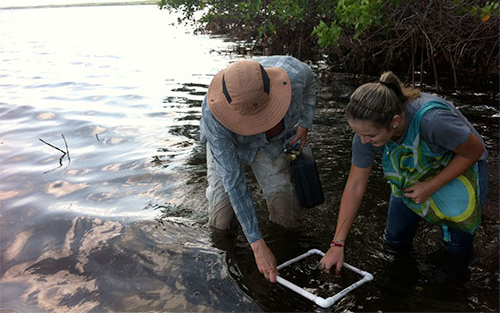Combining the research at FCE LTER with training and mentoring across the K-20 spectrum is critical for preparing future experts in science, engineering, and technology. FCE offers a variety of opportunities for pre- and professional service teachers, K-12 students, undergraduates and graduate students, in order to expose them to our research and to provide them with training and mentoring.
Coastal Angler Science Team
The Coastal Angler Science Team (CAST) is a collaborative effort between anglers and researchers in Dr. Jennifer Rehage’s lab. Dedicated to conservation of recreational fisheries and investigating how changes in the coastal Everglades impact coastal fisheries, CAST consists of two main projects: Project Bay Bones and Mark-Recapture.
- CAST: Project Bay Bones is a partnership between FCE researchers and The Bonefish and Tarpon Trust. Working side by side, anglers and researchers collect and share information to better understand how bonefish populations and distribution have changed over time, and how changes in South Florida waters may be affecting the quality of bonefishing. These results are being used to support bonefish conservation to better ensure high-quality fishing in the future.
- CAST: Mark-Recapture project focuses on the backcountry area of Everglades National Park. CAST: MR works with local fishermen, visitors, fishing guides and families who agree to target this region as part of their regular fishing routine. Researchers tag fish with microchips, and volunteer participants are outfitted with a scanner to identify any tagged fish they recapture. Volunteers agree to record and report data and release any recaptured fish.
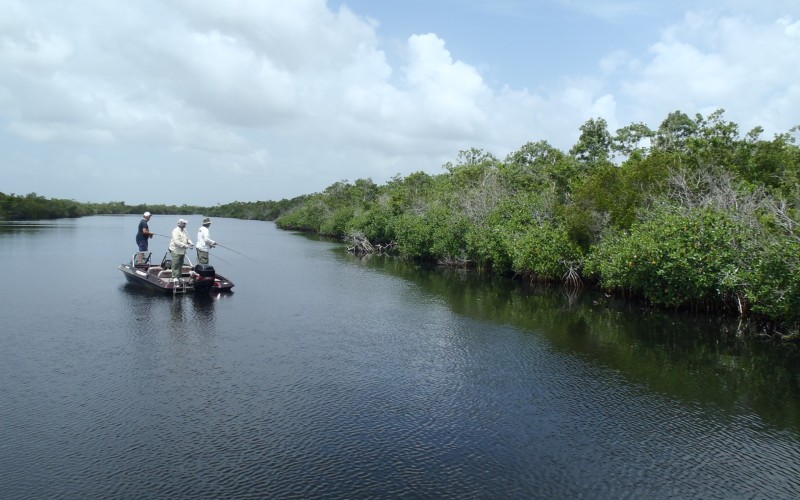
Predator Tracker
Predator Tracker is a standalone, web-based application based on the Fort Lauderdale Museum of Discovery and Science exhibit, highlighting the work of Drs. Jennifer Rehage and Mike Heithaus. At the museum, visitors are introduced to the tracking experiment, answer questions about the movement of individual animals, and are encouraged to use the web application to continue tracking their favorite animal. The web application is available for free, and tracking data are updated monthly for both the FTL-MODS exhibit and web-based app.
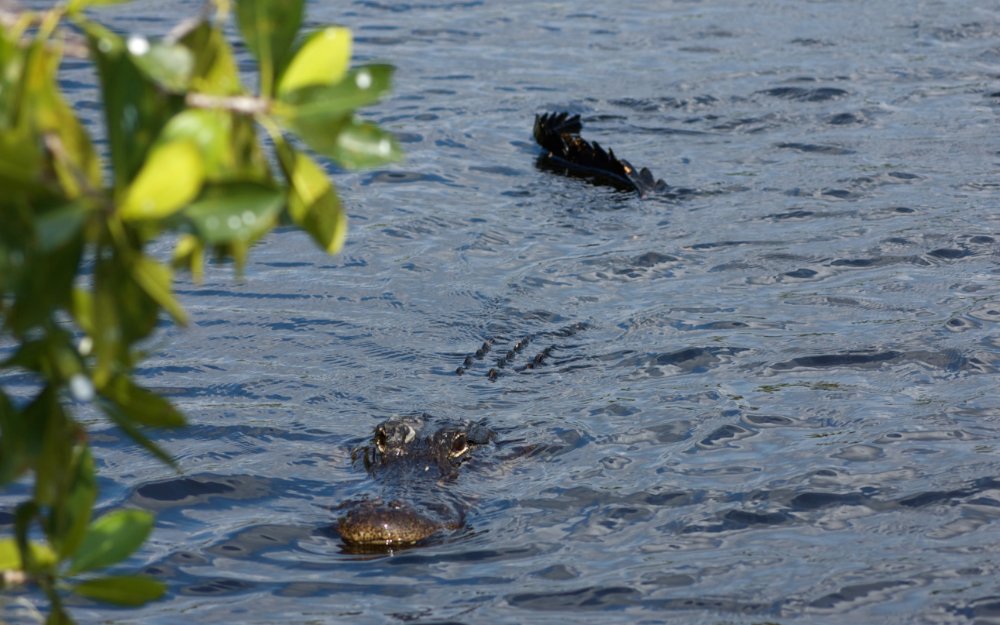
FCE LTeaER
In August 2018, the FCE Citizen Science program launched the FCE LTeaER decomposition project. Based on the TeaBag Index, LTeaERbags have been deployed at 11 FCE research sites along the Taylor and Shark River Slough transects and will be collected quarterly, dried, weighed, and used to calculate soil decomposition rates. In collaboration with the Everglades Foundation and FIUteach, the data will be used to discuss Everglades ecology and generate science fair projects. It will be shared internationally through the TeaBag Index.
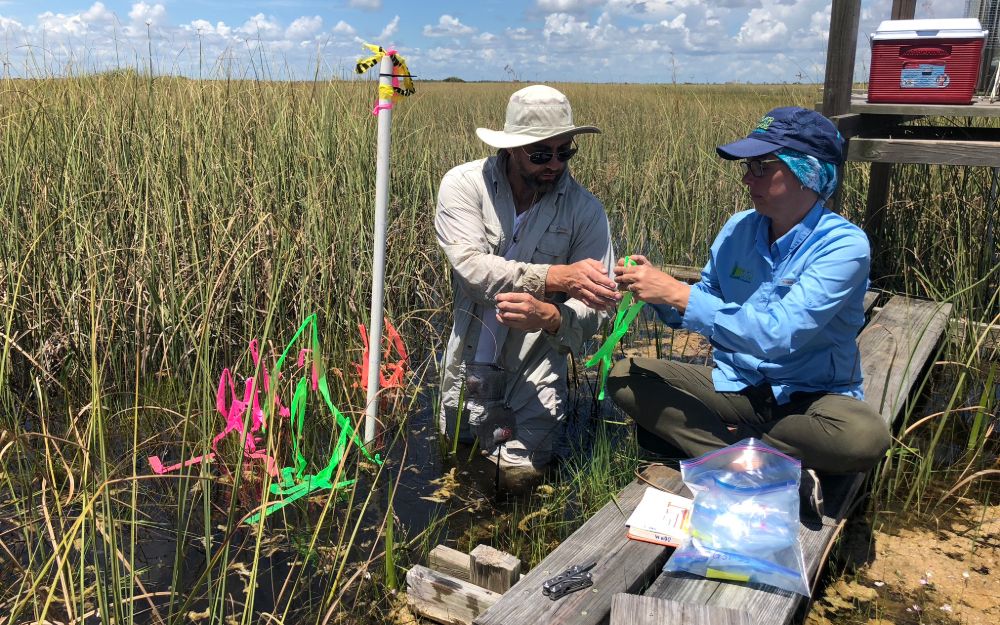
The FCE RET and Professional Development programs provide experiences that will:
- Inspire an informed understanding of place
- Foster an interest in socio-ecological, solutions-oriented science
- Encourage integration of research-based knowledge into classroom learning objectives using evidence-based STEM education best practices
Contact: Nick Oehm, Education and Outreach Coordinator
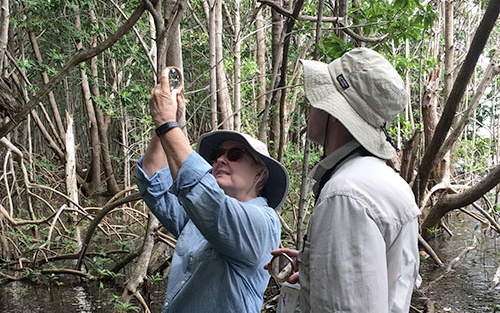
The FCE Research Experience for Undergraduates (REU) program gives two to three students the opportunity to work on projects with FCE researchers during the summer. Virtually all of our past REU students have presented posters of their findings at scientific meetings.
Contact: Nick Oehm, Education and Outreach Coordinator
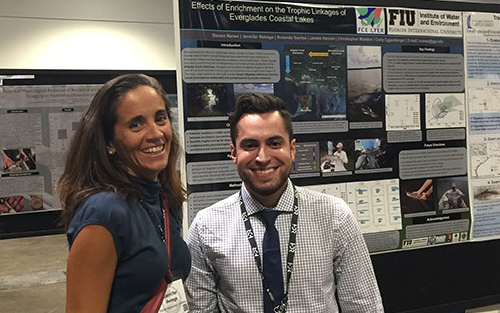
FCE's Research Experience for Secondary Students (RESSt) program began in 2003. Students work with FCE scientists 5 - 20 hours per week. Additionally, many students in the program:
- Present their work in their science classes
- Travel to elementary and middle schools to give presentations
- Present posters at our annual ASM meetings
- Compete in local, state and international science fairs
Contact: Nick Oehm, Education and Outreach Coordinator
